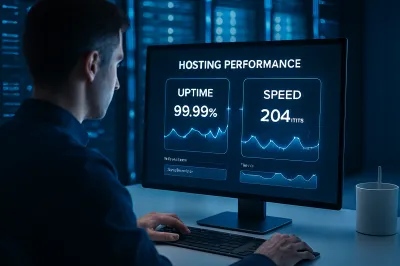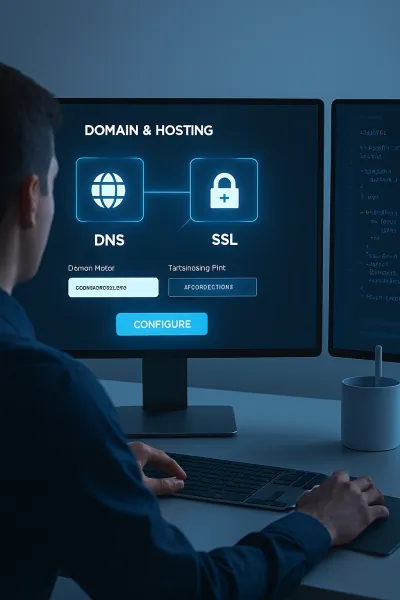Choosing a web host is like picking a location to build a house for your website. If you choose well, your site will be stable, secure, fast, and ready to welcome visitors at all times. But for beginners, the technical jargon and countless options can be overwhelming. This complete guide will help you understand and choose the best web hosting for your needs.
What is Web Hosting?
Web Hosting is a service that rents out space on a server—a high-performance computer connected to the internet 24/7. This space is used to store all of your website's files, such as images, code, and databases, allowing people from all over the world to access your site at any time.
Popular Types of Web Hosting
There are several types of hosting, but for beginners, it’s best to start by understanding these four main types.
1. Shared Hosting
This is the most popular and affordable option, perfect for beginners, small websites, or personal blogs. You "share" server resources, like CPU and RAM, with hundreds of other websites. The main advantage is its low cost and ease of management. However, if another site on the server uses too many resources, it can affect your site's speed.
2. VPS Hosting (Virtual Private Server)
Think of this as having a private room in an apartment building. Although you are still on the same physical server as others, you get a guaranteed allocation of resources (CPU, RAM) for yourself. This provides more stability and better performance than Shared Hosting, making it ideal for websites with growing traffic or small to medium-sized online stores.
3. Cloud Hosting
This is a modern and highly flexible technology that uses a network of multiple servers working together (the "cloud"). The key benefit is reliability; if one server fails, your website continues to run from another server in the network. You can also scale resources up or down based on actual usage, making it perfect for businesses that need maximum uptime and have fluctuating traffic.
Example of an interesting Cloud Hosting provider:
[product id=1]
4. Dedicated Server
This means you rent an entire server for your exclusive use. You get all the resources and have full control over everything. It's suitable for very large websites, corporations, or applications that require the highest level of performance and security. However, it comes with the highest price tag and requires technical knowledge to manage.
7 Factors to Consider When Choosing a Web Host
- Uptime: Choose a provider that guarantees at least 99.9% uptime to ensure your website is always online.
- Speed (Performance): Page load speed is crucial for both user experience and SEO. Look for hosting that uses SSD storage and has server locations close to your target audience.
- Customer Support: Problems can happen at any time. Select a provider with 24/7 support and multiple contact channels (Live Chat, Email, Phone).
- Security: Check if the host provides basic security measures like firewalls, malware scanning, and a free SSL certificate.
- Backups: Choose a provider with an automatic daily backup system so you can always restore your site if something goes wrong.
- Pricing: Don't just look at the first-year promotional price; check the renewal price as well. Compare the features you get to determine if it's good value for money.
- Scalability: Your website may grow in the future. It's wise to choose a host that allows you to easily upgrade your plan from Shared Hosting to a VPS or Cloud plan.
Conclusion
Choosing a web host isn't difficult once you understand your own needs. For most beginners, a quality Shared Hosting plan is more than enough to get started. As your website grows, you can then consider upgrading to a VPS or Cloud plan. Don't forget to use the seven factors above as a checklist to guide your decision!





